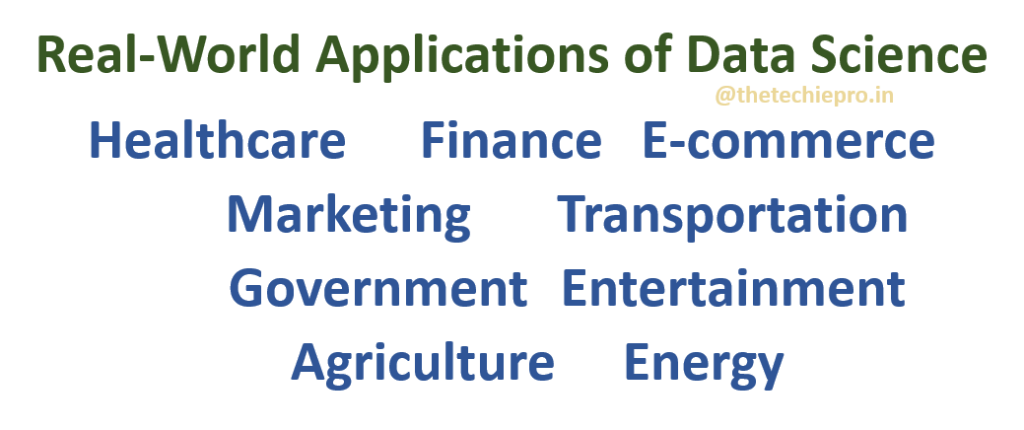Data science is an interdisciplinary field that leverages scientific methods, processes, algorithms, and systems to extract insights and knowledge from structured and unstructured data. By combining statistics, computer science, and domain expertise, data science analyzes large volumes of data to identify patterns, make predictions, and inform decision-making processes.
Various components of Data Science are:
1. Data Collection and Processing
These three steps are primarily involved in data collection and processing.
- Data Acquisition: Gathering data from various sources, such as databases, APIs, or web scraping.
- Data Cleaning: Handling missing values, outliers, and ensuring data quality.
- Data Transformation: Converting raw data into a suitable format for analysis.

2. Exploratory Data Analysis (EDA)
Visualizing and summarizing the data to understand its main characteristics, often using tools like histograms and scatter plots.
3. Statistical Modeling
Applying statistical techniques, such as regression analysis and hypothesis testing, to model relationships in data and make predictions.
4. Machine Learning
- Supervised Learning: Training models on labeled data for tasks like classification and regression.
- Unsupervised Learning: Finding patterns in unlabeled data, such as clustering or dimensionality reduction.
- Reinforcement Learning: Learning optimal actions through trial and error, used in AI and robotics.
5. Data Visualization
Creating visual representations of data and model outcomes using tools like Matplotlib, Seaborn, and Tableau.
6. Big Data Technologies
Managing and processing large-scale data with technologies like Hadoop, Spark, and distributed databases.
7. Deployment and Data Products
Building and deploying data-driven applications, such as recommendation systems and predictive analytics tools.
8. Ethics and Data Governance
Ensuring ethical use of data, securing it, and complying with regulations like GDPR.
Real-World Applications of Data Science
Data science is transforming industries worldwide, driving innovation and efficiency. Let’s explore some compelling examples across different sectors:

Healthcare
- Drug Discovery: Accelerating the development of new drugs by analyzing vast amounts of biological data to identify potential drug targets.
- Precision Medicine: Tailoring treatment plans based on individual patient data, including genetics, lifestyle, and medical history.
- Disease Outbreak Prediction: Using data to forecast the spread of diseases, enabling proactive measures.
Finance
- Fraud Detection: Identifying suspicious transactions and preventing financial losses.
- Risk Assessment: Evaluating creditworthiness and investment risks.
- Algorithmic Trading: Making high-frequency trading decisions based on real-time data analysis.
E-commerce
- Recommendation Systems: Suggesting products to customers based on their preferences and behavior.
- Customer Segmentation: Identifying different customer groups to tailor marketing strategies.
- Supply Chain Optimization: Improving inventory management and logistics.
Marketing
- Customer Segmentation: Dividing customers into groups based on shared characteristics for targeted marketing.
- Sentiment Analysis: Understanding customer opinions and feedback from social media and reviews.
- Predictive Analytics: Forecasting customer behavior and preferences.
Transportation
- Route Optimization: Finding the most efficient routes for delivery vehicles and public transportation.
- Predictive Maintenance: Predicting equipment failures to prevent breakdowns and optimize maintenance schedules.
- Autonomous Vehicles: Developing self-driving cars using data from sensors and cameras.
Government
- Public Safety: Analyzing crime data to identify patterns and allocate resources effectively.
- Disaster Management: Using data to predict and respond to natural disasters.
- Urban Planning: Optimizing city infrastructure and services based on population data and trends.
Entertainment
- Content Recommendation: Suggesting movies, TV shows, and music based on user preferences.
- Customer Churn Prediction: Identifying customers at risk of leaving a service.
- Audience Segmentation: Understanding different audience segments for targeted advertising.
Agriculture
- Precision Agriculture: Optimizing crop yields by analyzing soil, weather, and crop data.
- Crop Disease Detection: Using image analysis to identify plant diseases early on.
- Supply Chain Management: Improving food distribution efficiency.
Energy
- Demand Forecasting: Predicting energy consumption to optimize power generation.
- Energy Efficiency: Identifying opportunities to reduce energy consumption in buildings and industries.
- Renewable Energy Integration: Integrating renewable energy sources into the grid.
These are just a few examples of how data science is being applied globally. As technology continues to advance, we can expect even more innovative and impactful applications in the years to come.

Leave a Reply